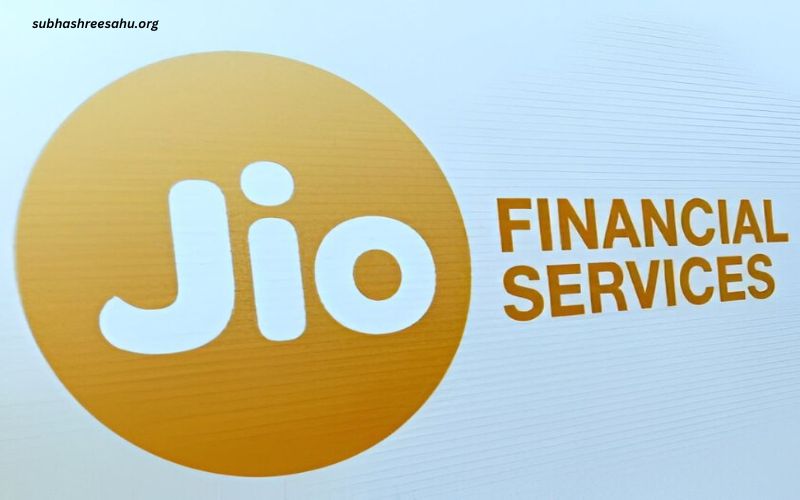Overview of Jio Finance
Jio Finance is a financial services entity associated with Reliance Industries, one of India’s largest conglomerates. Established to complement Reliance’s telecommunications arm, Jio Finance aims to provide a range of financial services including digital payments, lending, insurance, and wealth management. The company’s integration with Reliance’s vast ecosystem positions it strategically in the Indian financial landscape.
Historical Performance of Jio Finance Share Price
To understand the current share price of Jio Finance, it’s essential to look at its historical performance. Since its inception, the share price of Jio Finance has seen significant fluctuations, reflecting broader market trends, company performance, and macroeconomic factors.
Initial Public Offering (IPO): Jio Finance went public in early 2023, with its IPO generating substantial buzz in the market. The initial share price was set at a level that reflected high investor expectations due to the company’s strong backing by Reliance Industries and the anticipated synergies between Jio Finance and Jio’s telecommunications network.
Post-IPO Trends: Following the IPO, the share price experienced volatility, typical of newly listed companies. Initially, there was a surge in share prices driven by investor enthusiasm and market speculation. However, as with many IPOs, the price later stabilized and adjusted to reflect the company’s actual performance and market conditions.
Recent Developments: In the past year, Jio Finance’s share price has been influenced by various factors including quarterly earnings reports, regulatory changes, and broader economic trends. Significant milestones such as successful product launches, strategic partnerships, and technological advancements have played a role in shaping the share price.
Factors Influencing Jio Finance Share Price
Several factors impact Jio Finance’s share price, reflecting both company-specific elements and broader market dynamics:
- Financial Performance: Earnings reports are crucial in determining share price movements. Investors closely monitor revenue growth, profitability, and other key financial metrics. Strong financial performance, driven by robust customer acquisition, innovative product offerings, and effective cost management, generally leads to a favorable share price trend.
- Market Sentiment: Investor sentiment plays a significant role in share price volatility. Positive news such as strategic partnerships, technological innovations, or favorable regulatory developments can boost investor confidence and drive share prices up. Conversely, negative news or concerns about market competition can lead to declines.
- Economic Indicators: Broader economic indicators such as interest rates, inflation, and GDP growth affect share prices. A strong economy generally supports higher share prices, while economic downturns can lead to declines. Jio Finance’s performance is also tied to the overall health of the Indian economy and the financial sector.
- Regulatory Environment: Financial services are heavily regulated. Changes in regulations or government policies can impact Jio Finance’s operations and profitability. For example, alterations in lending norms or digital payment regulations can influence share price dynamics.
- Competitive Landscape: The financial services sector is highly competitive. Jio Finance faces competition from both traditional financial institutions and other fintech companies. The company’s ability to differentiate itself through innovative solutions, superior customer service, and strategic pricing can impact its market share and, consequently, its share price.
- Technological Advancements: As a fintech entity, technological innovation is crucial. Jio Finance’s investments in technology, such as AI, blockchain, and digital payment systems, can enhance operational efficiency and customer experience, positively impacting share price.
- Investor Expectations: Market expectations and speculation can drive share price movements. Anticipations regarding future growth, strategic initiatives, and overall market trends influence investor behavior and share price fluctuations.
Recent Performance Analysis
In recent months, Jio Finance’s share price has shown a trend that reflects the company’s ongoing strategic adjustments and market responses. Key developments such as successful new product launches, strategic alliances, and positive earnings reports have contributed to a favorable share price trajectory.
For instance, the company’s entry into new markets or segments, such as insurance or wealth management, often garners investor interest. Additionally, successful integration of technology and expansion of digital services play a critical role in enhancing market perception and driving share prices.
Future Outlook
The future outlook for Jio Finance’s share price depends on several factors:
- Expansion Plans: Jio Finance’s strategic expansion into new financial services and markets can influence its share price. Successful execution of expansion plans and entry into high-growth segments can lead to positive market reactions.
- Technological Innovations: Continued investment in cutting-edge technologies and digital transformation initiatives will be key in sustaining competitive advantage and driving future growth. This, in turn, could positively affect the share price.
- Economic and Regulatory Factors: Monitoring economic trends and regulatory changes will be crucial for predicting share price movements. Adaptation to regulatory changes and favorable economic conditions can support a positive share price outlook.
- Market Competition: The ability of Jio Finance to maintain and grow its market share amidst increasing competition will impact investor sentiment and share price. Competitive positioning and strategic responses to market challenges will be important.
- Global Economic Conditions: Global economic conditions and international market trends can also influence Jio Finance’s performance. For example, fluctuations in global financial markets or changes in international trade policies could impact investor confidence and share price.
Conclusion
Jio Finance’s share price reflects a complex interplay of company-specific factors, market conditions, and broader economic indicators. Understanding the historical performance, key influencing factors, and future outlook provides valuable insights for investors and market analysts. As Jio Finance continues to navigate the evolving financial landscape, its share price will likely remain subject to both internal developments and external market forces. Keeping abreast of these elements will be essential for making informed investment decisions and understanding the company’s position within the financial sector.

